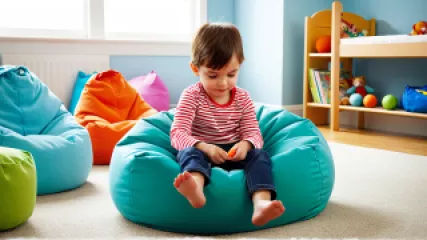Effective Strategies for Managing Challenging Behaviors in Children
Effective Strategies for Managing Challenging Behaviors in Children
As parents, educators, or caregivers, we often face the challenge of dealing with children's challenging behaviors. Whether it's tantrums, defiance, or difficulty focusing, these behaviors can be overwhelming and can impact the child's well-being, as well as the well-being of those around them. However, with the right strategies and a compassionate approach, we can help children develop the skills they need to manage their emotions and behaviors effectively.
Understanding the Root Causes of Challenging Behaviors
Before we can effectively address challenging behaviors in children, it's important to understand the underlying causes. Challenging behaviors can stem from a variety of factors, including developmental delays, environmental influences, and emotional or social difficulties.
One common cause of challenging behaviors is a lack of emotional regulation skills. Children may not yet have the tools to express their feelings in a healthy way, leading to outbursts or withdrawal. Additionally, children who have experienced trauma or adverse childhood experiences may have difficulty managing their emotions and behaviors.
Environmental factors, such as a chaotic or unstable home environment, can also contribute to challenging behaviors. Children thrive on routine, stability, and a sense of safety, and when these elements are lacking, they may struggle to regulate their actions and reactions.
It's also important to consider the role of developmental delays or disabilities in challenging behaviors. Children with conditions such as autism, ADHD, or sensory processing disorders may have a harder time navigating social situations or managing their impulses, leading to behaviors that may be perceived as challenging.
Implementing Effective Strategies for Managing Challenging Behaviors
Once we understand the root causes of challenging behaviors, we can begin to implement effective strategies to help children develop the skills they need to manage their emotions and behaviors. Here are some key strategies to consider:
1. Establish a Consistent Routine
Children thrive on predictability and structure. Establishing a consistent daily routine can help reduce the likelihood of challenging behaviors by providing a sense of security and stability. This can include setting regular schedules for meals, naps, playtime, and bedtime.
2. Teach Emotional Regulation Skills
Helping children develop the ability to recognize and manage their emotions is a crucial step in addressing challenging behaviors. This can involve teaching them strategies such as deep breathing, mindfulness, or self-soothing techniques. Providing a safe, nurturing environment where children feel comfortable expressing their feelings can also be helpful.
3. Use Positive Reinforcement
Positive reinforcement is a powerful tool for encouraging desired behaviors in children. This can involve offering praise, rewards, or privileges when a child exhibits positive behaviors, such as following instructions or managing their emotions effectively. It's important to tailor the reinforcement to the individual child's interests and preferences.
4. Set Clear Limits and Consequences
While positive reinforcement is important, it's also necessary to set clear limits and consequences for undesirable behaviors. This helps children understand the boundaries and learn to make better choices. When a child exhibits a challenging behavior, it's important to respond calmly and consistently, using a neutral tone to explain the consequences and provide guidance on more appropriate behaviors.
5. Provide Opportunities for Physical Activity
Many challenging behaviors in children can be attributed to pent-up energy or a need for physical outlet. Incorporating regular physical activity, such as outdoor play, exercise, or sports, can help children burn off excess energy and improve their ability to focus and regulate their behaviors.
6. Collaborate with Professionals
In some cases, children may benefit from the support of professionals, such as child behavior therapists, youth coaches, or mental health specialists. These experts can provide tailored interventions and strategies to address specific behavioral challenges, as well as offer guidance and support to parents and caregivers.
Addressing Challenging Behaviors with Compassion and Patience
Managing challenging behaviors in children can be a complex and ongoing process, but with the right strategies and a compassionate approach, we can help children develop the skills they need to navigate their emotions and behaviors effectively. Remember, every child is unique, and what works for one may not work for another. It's important to be patient, adaptable, and willing to try different approaches to find what works best for the individual child.
By fostering a nurturing environment, teaching emotional regulation skills, and providing consistent guidance and support, we can empower children to overcome their challenges and develop the resilience they need to thrive. With time, patience, and the right tools, we can help children learn to manage their behaviors, build positive relationships, and achieve personal growth.
Conclusion
Addressing challenging behaviors in children requires a multifaceted approach that takes into account the unique needs and circumstances of each child. By understanding the root causes, implementing effective strategies, and collaborating with professionals when necessary, we can help children develop the skills they need to manage their emotions and behaviors effectively. With a compassionate and patient approach, we can support children in overcoming their challenges and set them on a path to success.
Remember, every child's journey is different, and the strategies that work best may vary. Be willing to experiment, seek support when needed, and celebrate the small victories. By working together with children, families, and the broader community, we can create a world where all children have the opportunity to thrive and reach their full potential.






